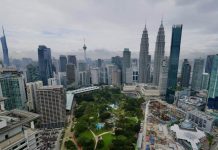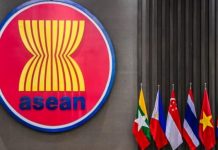Headlines:
- Bank Negara: Norway fund pull out won’t have significant impact
- HSBC Global Research: Malaysian economy holding up well
- MIDA approved RM129b investments for Penang
- Indonesia has a grand US$412b plan to rebuild the country
- Huawei’s US$105 billion business at stake after US broadside
Bank Negara: Norway fund pull out won’t have significant impact
Bank Negara said the Norwegian sovereign wealth fund’s decision to drop emerging market bonds from the benchmark index it tracks will not have a significant impact on Malaysia. The Central Bank’s Governor Datuk Nor Shamsiah Mohd Yunus (pic) said the impact would not be significant to Malaysia as the country has a big pool of domestic institutional investors. She said despite the Norwegian sovereign wealth fund’s decision, Malaysia bond yield had sustained at the same level as at the beginning of this year. “Bond yields did increase due to the outflow but recently, it had declined again to the level that we saw at the beginning of the year. “This is the feature of the bond market, it would have inflows and outflows. More importantly, we are here to ensure any flows and any movement on the ringgit exchange rate is orderly and do not disrupt financial market or economic activities,” she added.
HSBC Global Research: Malaysian economy holding up well
HSBC Global Research said Malaysia’s GDP growth of 4.5% in the first quarter of 2019 shows the economy has been holding up relatively well by regional standards. It said while growth slowed from the previous quarter’s 4.7%, the deceleration was quite measured, and “the details suggest that manufacturing activity is holding up, private consumption should remain above-trend, and the commodity sector is recovering from disruptions in previous years”. However, on a more negative note, investment activity contracted sharply in Q1, it pointed out. Bank Negara’s GDP data showed private sector investment fell to 0.4% from 5.8% in Q4 last year and 1.1% a year ago. Public sector investment shrank significantly by 13.2% in Q1 of this year versus -5.9% in Q4 of last year and -1.3% a year ago. HSBC Gobal Research said the Q1 2019 GDP growth of 4.5% on-year was in line with its expectations, but stronger than consensus of 4.3%. On a quarter-on-quarter seasonally adjusted basis, GDP expanded 1.1%, a moderation from the 1.3% pace seen in Q4 last year.
MIDA approved RM129b investments for Penang
The Malaysian Investment Development Authority (MIDA) has approved 4,084 manufacturing projects for Penang as of 2018 with investments totalling RM129.1bil. MIDA said these projects have created over 516,600 job opportunities, mainly in electrical and electronics products, basic metal products, scientific and measuring equipment, machinery and equipment and transport equipment. MIDA added that approved foreign investments in the manufacturing sector totalled RM90.4bil or 70% of total investments approved for the state. The other 30% was from domestic investments and they accounted for RM38.7bil. In 2018, Mida approved 108 manufacturing projects to be located in Penang worth RM5.8bil. MIDA’s deputy chief executive officer Arham Abdul Rahman said since the arrival of the eight pioneer foreign companies also known as the “8 Samurais” in Penang, in the 1970s, the state continues to have a strong presence of MNCs and large local corporations (LLCs).
Indonesia has a grand US$412b plan to rebuild the country
Indonesia is drafting ambitious plans for more than $400 billion in building projects, from constructing 25 airports to new power plants. Planning Minister, Bambang
Brodjonegoro said the sweeping proposal calls for a record 5,957 trillion rupiah ($412 billion) in investments from 2020 to 2024. As much as 40% of the total will be funded directly by the government, 25% through state-owned enterprises and the rest through the private sector, he said. About 60% of the spending will go toward transportation-related infrastructure, according to a draft of the plan seen by Bloomberg and verified by the ministry. Indonesia has been expanding at about 5% a year. While the government is aiming for growth of 5.3% to 5.6% next year, that’s still short of the 7% Jokowi had targeted before his first term began.
Huawei’s US$105 billion business at stake after US broadside
The latest U.S. broadside against Huawei that puts the Chinese firm on an exports blacklist threatens to rattle the global tech supply chain, linked closely to the US$105 billion business of the world’s top supplier of telecoms network equipment. The Trump administration has said it would add Huawei Technologies and 70 affiliates to its “Entity List” – a move that will likely ban the firm from acquiring U.S. components and technology without government approval, adding another incendiary element to the U.S.-China trade war. The ban is not yet effective. A similar U.S. ban on China’s ZTE Corp had almost crippled business for the smaller Huawei rival early last year before the curb was lifted. Such sanctions on Huawei are, however, likely to have ramifications beyond the company itself, analysts said. Out of US$70 billion Huawei spent for component procurement in 2018, some US$11 billion went to U.S. firms including Qualcomm, Intel Corp and Micron Technology Inc, and they could see that revenue disappear. On the other hand, U.S. companies like Apple face the risk of severe retaliation from China, a key market.














